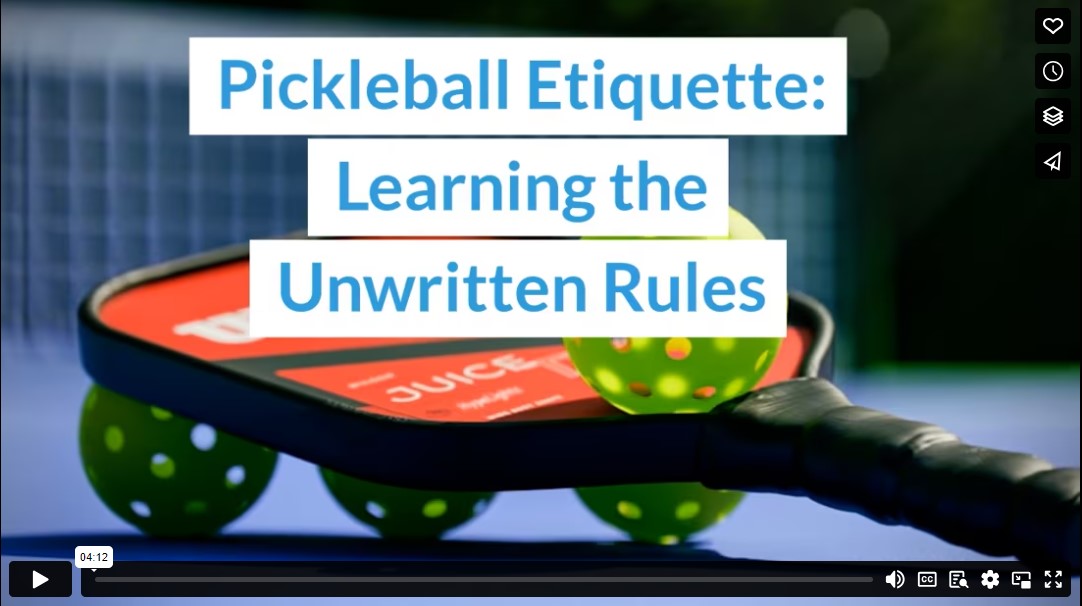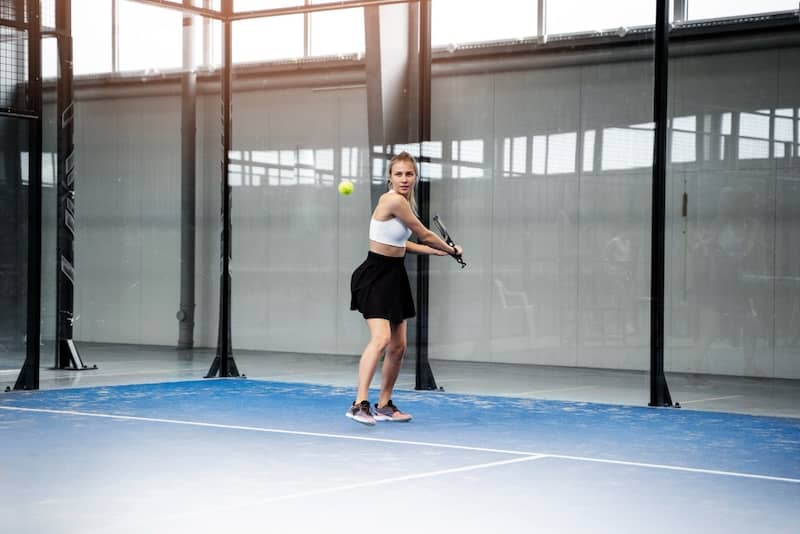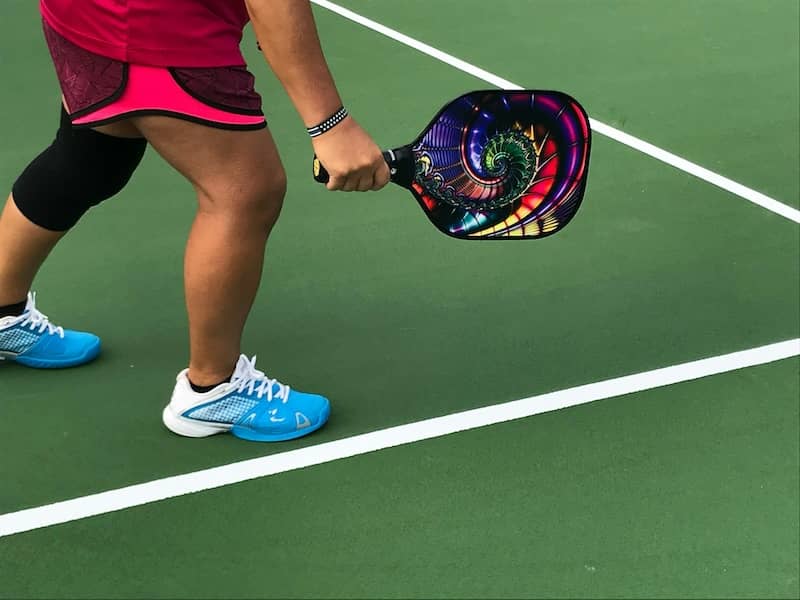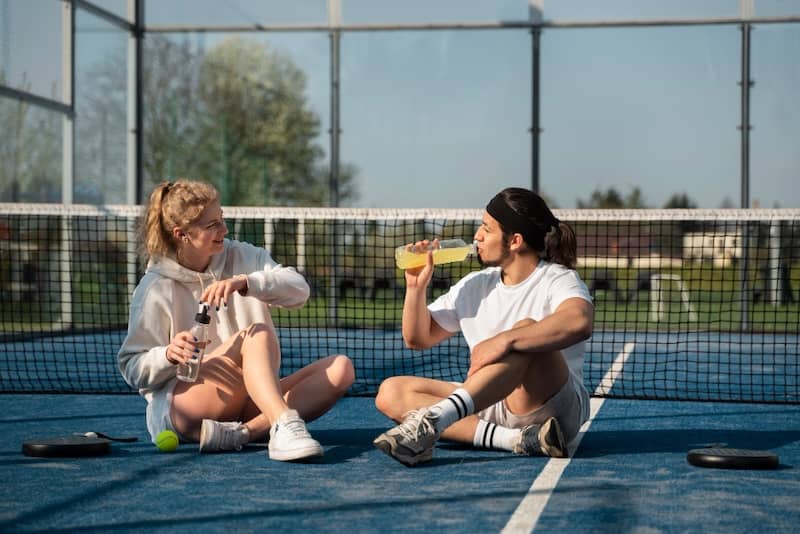The purpose of etiquette is to set clear expectations for everyone so they can feel confident they aren’t causing offense or violating expected norms. It does that quite well, but only if you know the protocols.
Pickleball etiquette is no different. It serves to make sure everyone is operating under the same expectations. The last thing you want to feel when you go out for pickleball fun is anxiety about expectations. Awareness of pickleball’s unwritten rules can make you feel more comfortable around other players and more confident when you hit the court. To avoid expectation anxiety, learn these rules of pickleball etiquette:
Sharing is Caring
With its skyrocketing popularity, pickleball is drawing crowds. That’s fantastic as it means more people to play with and join the pickleball community. However, it can also mean wait times at courts.
Remember to share court space. When you finish a game, if someone is waiting, cede the territory to them. You can wait for the next round. While you do so, enjoy one of the best aspects of pickleball–the sense of community. Use the time between games to chat with fellow players or encourage those on the court. Once you’ve had your turn, pass the court on to someone else.
Always Give the Benefit of the Doubt
You thought that shot you hit was brilliant, but the other team called out. Assume your opponent had a clearer view and respect their call. If you are responsible for calling a ball in or out and unsure where it hit, err on the side of calling it in, even if it costs you a point.
Pickleball is a casual sport centered more around fun than victory. Remember this when you are making or doubting line calls. Assume the other players mean well and are doing their best. Trust that their take on ball placement is likely correct.
Don’t succumb to the temptation to pad your score by fibbing on close calls. That behavior will quickly build you a reputation as a dishonest player. Call them as you see them; if you aren’t sure what you saw, call them “in.” Integrity and community are more important than victory.
Win Graciously
Everyone enjoys winning. It’s okay to celebrate a skillfully executed point or the win of a game. However, don’t go overboard. A fist bump or paddle tap is an excellent way to recognize a significant point or winning shot with your partner. Leave the victory dances and triumphant screams out of your pickleball game. Your opponents will thank you. Gloating or showboating has no place in pickleball.
Lose Graciously Too
How you win is important, but so is how you lose. Thank your opponent for a good game, and leave it at that. There’s no need to rehash the point you think was miscalled or bemoan what would have happened if only your pickleball sneakers hadn’t come untied. If you are upset about a loss, use that as motivation to improve your game rather than permission to have a tantrum.
Pickleball etiquette also frowns upon trash talk and negative comments. Good vibes only, win or lose.
Return Balls
No matter how advanced the players are, sometimes their shots will roll into neighboring courts. If someone else’s ball strays into your area, return it. Don’t pocket it or swap it with one of your old, worn ones. Even if they have one of the best pickleball balls on the market and you have old hand-me-downs, give it back. Respect the property of other players. That includes returning their mis-hit balls.
Retrieve Your Balls Respectfully
When your ball rolls onto someone else’s court, don’t interrupt their game to get it back. Call out “ball on the court!” to inform them of a potential obstacle in their playing field. Then, wait until they finish the point they are playing. They will likely make eye contact and gently toss or roll it back to you.
Do the same for others. If their ball enters your court, follow the etiquette for returning it:
- Finish your point.
- Pick up their ball.
- Make eye contact so you know they are ready for the ball.
- Roll or softly throw it back to them.
All Players Welcome
If the person in line for the next game is less skilled than you, play anyway. And do so with good sportsmanship, giving them a fighting chance. You are both there to enjoy the game, even if that means one of you have to play down. This situation could be an excellent opportunity to work on your weaker backhand or focus on a specific type of shot you often struggle with. That way, the other team has a chance, and you are still improving your game.
As a beginner, you will appreciate this kind of treatment from advanced players. Once you become a seasoned pickler, pay it forward by helping new players and giving them a fighting chance.
If you follow these rules of pickleball etiquette, you’ll be the pickler everyone loves to see arrive at the courts. You’ll ensure you aren’t inadvertently offending others. And most importantly, you’ll quickly become a valued and respected part of the community that makes pickleball so special.
Video
Infographic
Etiquette establishes clear expectations for everyone so they can feel confident they are not causing offense. Being aware of the unwritten rules can make you feel more comfortable around other players. Learn these rules of pickleball etiquette in this infographic.





